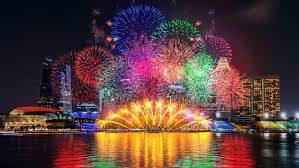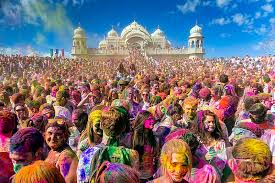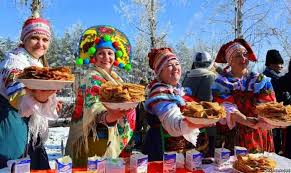Celebrating Diversity: Exploring the World’s Most Colorful Festivals
Festivals are not just celebrations; they are expressions of culture, history, and shared values that bring people together. Across the globe, festivals play a vital role in celebrating the unique traditions of different communities, showcasing their vibrant culture, and fostering unity in diversity. From extravagant parades to spiritual rituals, these events are a vivid reminder of the beauty and diversity that exists in our world. In this article, we’ll explore some of the most colorful festivals around the world and how they contribute to cultural exchange and celebration.
The Power of Festivals: A Celebration of Diversity
Festivals are deeply embedded in the cultural fabric of societies worldwide. They celebrate everything from historical events to seasonal changes, honoring religious beliefs, milestones, and even nature itself. These celebrations provide people with the opportunity to come together, strengthen their community ties, and showcase their unique identities.
In a world that is becoming increasingly interconnected, festivals offer an opportunity to celebrate diversity, build understanding, and appreciate cultural richness. Whether it’s through food, music, dance, or art, festivals are one of the best ways to experience the richness of human expression.
1. Holi: The Festival of Colors (India)
One of the most iconic and colorful festivals in the world, Holi, is celebrated by millions in India and around the world. Known as the Festival of Colors, Holi marks the arrival of spring and the triumph of good over evil. Participants throw vibrant powders at each other, dance to traditional music, and enjoy sweets and festive foods.
Why it’s special: Holi is a joyful and inclusive celebration that transcends barriers of caste, age, and background, encouraging unity and friendship among diverse groups of people. The explosion of colors symbolizes the breaking down of social divides and the renewal of relationships.
2. Carnival: The Grand Brazilian Celebration (Brazil)
Brazil’s Carnival is arguably the most famous festival in the world. Held annually before Lent, it’s a multi-day celebration of music, dance, and elaborate costumes. The Rio Carnival is the highlight, with its famous samba parades, street parties, and stunning costumes.
Why it’s special: Carnival is a massive celebration of Brazilian culture, combining African, Portuguese, and indigenous influences. The festival is a symbol of national unity, diversity, and the joyous spirit of the Brazilian people.
3. Chinese New Year: A Cultural Extravaganza (China and worldwide)
Chinese New Year is a time of renewal and a celebration of family and tradition. The festival, also known as the Spring Festival, marks the beginning of the lunar new year and is celebrated with grand feasts, fireworks, lion dances, and the giving of red envelopes filled with money (hongbao) for good luck.
Why it’s special: Chinese New Year is a time to honor ancestors and welcome a prosperous future. Its significance is not only cultural but also spiritual, as people come together to wish for happiness, wealth, and good health in the year to come.
4. La Tomatina: The Tomato Fight Festival (Spain)
La Tomatina, held annually in Buñol, Spain, is one of the most unusual and fun festivals in the world. Thousands of participants gather to engage in a giant tomato fight, where overripe tomatoes are thrown at one another for hours.
Why it’s special: The festival originated in a spontaneous street fight in the 1940s and has since grown into an international event. It’s a lighthearted celebration of joy and communal participation, where the messier, the better!
5. Diwali: The Festival of Lights (India and worldwide)
Diwali, also known as the Festival of Lights, is one of the most important festivals in Hindu culture, celebrated by millions around the world. It marks the triumph of light over darkness and good over evil. During Diwali, homes and public spaces are illuminated with oil lamps (diyas) and colorful rangoli patterns, and fireworks fill the sky.
Why it’s special: Diwali symbolizes the victory of hope and positivity. It’s a time for reflection, celebration, and bonding with family and friends. The festival’s dazzling lights and vibrant colors signify the dispelling of ignorance and the welcoming of knowledge and enlightenment.
6. Mardi Gras: A Festival of Parades and Feasts (USA)
Mardi Gras is celebrated annually in New Orleans, Louisiana, and other parts of the United States. Known for its grand parades, masquerade balls, and lively street celebrations, Mardi Gras is the culmination of the Carnival season, marked by vibrant costumes and the famous throwing of beads and trinkets.
Why it’s special: Mardi Gras is a unique blend of French, African, and Spanish influences. The festival is not only a time of joyous celebration but also a way to showcase the multicultural heritage and diversity of New Orleans.
7. Oktoberfest: A Bavarian Tradition (Germany)
Oktoberfest is the world’s largest beer festival, held annually in Munich, Germany. The festival runs for two weeks, celebrating Bavarian culture with traditional music, hearty food, and, of course, beer. People from all over the world come together to enjoy this festive occasion in massive beer tents, wearing lederhosen and dirndls.
Why it’s special: Oktoberfest is a celebration of Bavarian traditions, community, and hospitality. The festival brings people of all ages and backgrounds together to enjoy good food, drink, and entertainment in a lively and inclusive environment.
8. Edinburgh Festival Fringe: A Celebration of Arts and Creativity (Scotland)
The Edinburgh Festival Fringe is the world’s largest arts festival, featuring thousands of performances across hundreds of venues in the Scottish capital. The festival celebrates theater, comedy, dance, and music, with both established and emerging artists showcasing their talents.
Why it’s special: The Fringe is a hub for creativity and innovation, offering a platform for artists to push boundaries and explore new forms of expression. It brings together people from all walks of life to celebrate the arts and the creative spirit.
Why Festivals Matter
Festivals, in their many forms, are not just about celebration—they are vital cultural touchstones that promote social cohesion, tourism, and community well-being. They provide opportunities for cultural exchange, allowing people to experience the beauty of diverse traditions and practices from around the world.
- Promote Unity: Festivals often serve as a unifying force, bringing together people from different backgrounds, religions, and ethnicities to celebrate shared values and common joys.
- Foster Understanding: By participating in or learning about global festivals, we gain a deeper understanding of other cultures, which fosters respect and tolerance.
- Boost Local Economies: Festivals attract tourists, which boosts local businesses and the hospitality industry. They often lead to increased employment opportunities and economic growth in the host cities.
- Preserve Traditions: Festivals are a means of preserving cultural heritage and passing down traditions from one generation to the next, ensuring that valuable practices are kept alive.
Conclusion: A World of Color and Culture
Festivals are a testament to the diversity of the human experience. From the grandeur of Brazil’s Carnival to the vibrant colors of India’s Holi, every festival is a celebration of community, tradition, and the spirit of togetherness. They remind us that despite our differences, we share a common humanity, one that celebrates joy, love, and the beauty of life. So, the next time a festival comes your way—whether it’s in your hometown or across the globe—embrace it as an opportunity to connect with the world and celebrate the richness of culture.
Keywords: festivals around the world, cultural diversity, celebration of traditions, Holi, Carnival Brazil, Diwali, Chinese New Year, La Tomatina, Mardi Gras, Oktoberfest, Edinburgh Festival, global festivals, cultural exchange, unity in diversity, international festivals, colorful festivals, tradition, cultural heritage, community celebrations, arts festivals, inclusive celebrations, joyful festivals, tourism, global unity, music festivals, food festivals, seasonal celebrations.





